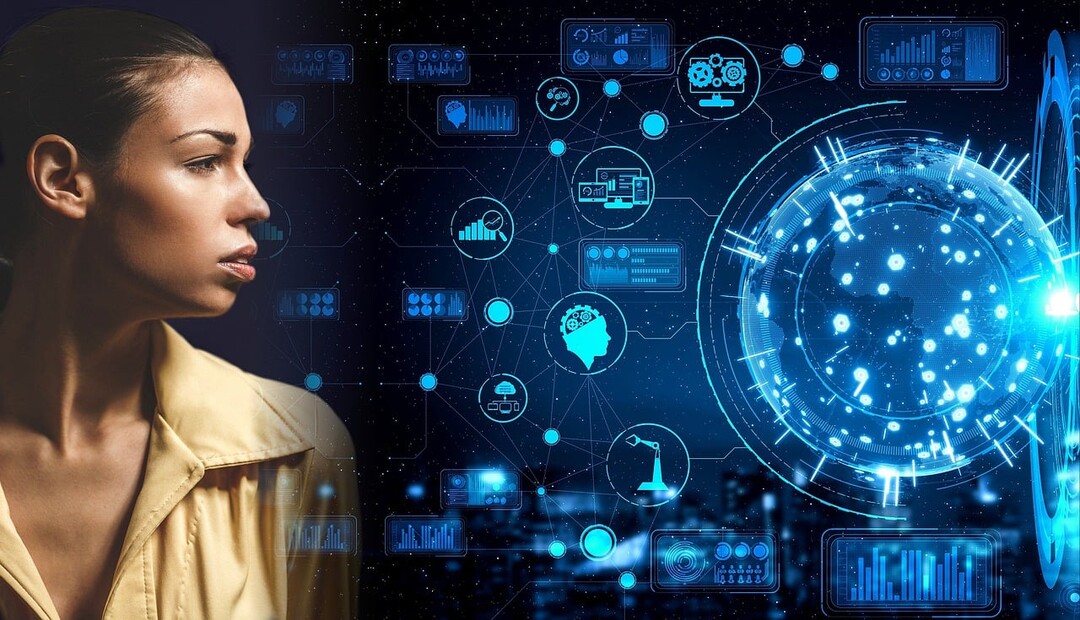
[GLOBAL ECONOMIC TIMES] In early October, this year's Nobel Prize in Physics and Chemistry were awarded to researchers in the field of artificial intelligence (AI). This is very unusual considering that the research history in the field of artificial intelligence is shorter than that of other basic sciences, but it means that artificial intelligence-related science and technology is an important technology that will have a significant impact in many aspects on the capabilities and economic growth of countries around the world in the future. Do it.
In order to take the international lead in the field of artificial intelligence, our government also launched a public-private joint ‘National Artificial Intelligence Committee’ chaired by the President in September and is pursuing full-scale support policies. However, Geoffrey Hinton, professor emeritus at the University of Toronto, Canada, who recently won the Nobel Prize, warned that we must prepare for various social risks that may arise due to the development of artificial intelligence technology.
One of the important risk factors directly related to people's daily lives is the issue of personal information infringement in the era of artificial intelligence. In order to improve the performance of generative artificial intelligence, large amounts of data must be trained. Furthermore, learning personal information is essential to provide the best artificial intelligence service that provides customized services to individuals.
Future artificial intelligence cutting-edge technologies, such as customized medical service robots and self-driving vehicles combined with artificial intelligence, can only be completed when specific individual information is ultimately learned. As the value of personal information increases, the risk of rights violations that may occur in the process inevitably increases.
In particular, generative artificial intelligence has a wide range of information processing, and developers and service providers can generate unique results on their own that cannot be predicted. In that respect, the scope or aspect of infringement on the right to self-determination of personal information may appear wide and diverse.
Although the right to self-determination of personal information is not explicitly stipulated in the Constitution, it is a fundamental right that the Constitutional Court has recognized in many cases based on constitutional personality rights, privacy, confidentiality, and freedom. Therefore, this means that the state has an obligation to support the development of artificial intelligence technology and at the same time protect citizens' right to self-determination of personal information from being violated in the process, and is responsible for establishing legal and institutional mechanisms for this.
In the current Personal Information Protection Act, which was revised in 2023, new regulations were established to secure the rights of personal information subjects regarding artificial intelligence services. The Personal Information Protection Committee also announced standards for processing ‘disclosed personal information’ for artificial intelligence development and services last July, and specific legal standards and procedures for learning and utilizing personal information by artificial intelligence are being prepared in stages. However, it is true that there are still many shortcomings compared to the speed of technological development.
In the 22nd National Assembly, several bills were proposed to foster and support the artificial intelligence industry. Most of the content comprehensively stipulates industrial development and risk control that may occur in the process. It is hoped that an integrated and systematic legal system will be established to reduce the risk of personal information infringement through a systematic review of the Personal Information Protection Act during the enactment of the Artificial Intelligence Act.
In the era of generative artificial intelligence, personal information can be said to be an important resource comparable to oil in the early industrialization era. Our artificial intelligence industry should not be hindered in the global market where there is fierce technological competition due to excessive regulations, but we must quickly establish laws and systems that balance technological development and risk management to prevent people's basic rights from being violated in the process. I look forward to it.
[Copyright (c) Global Economic Times. All Rights Reserved.]



























